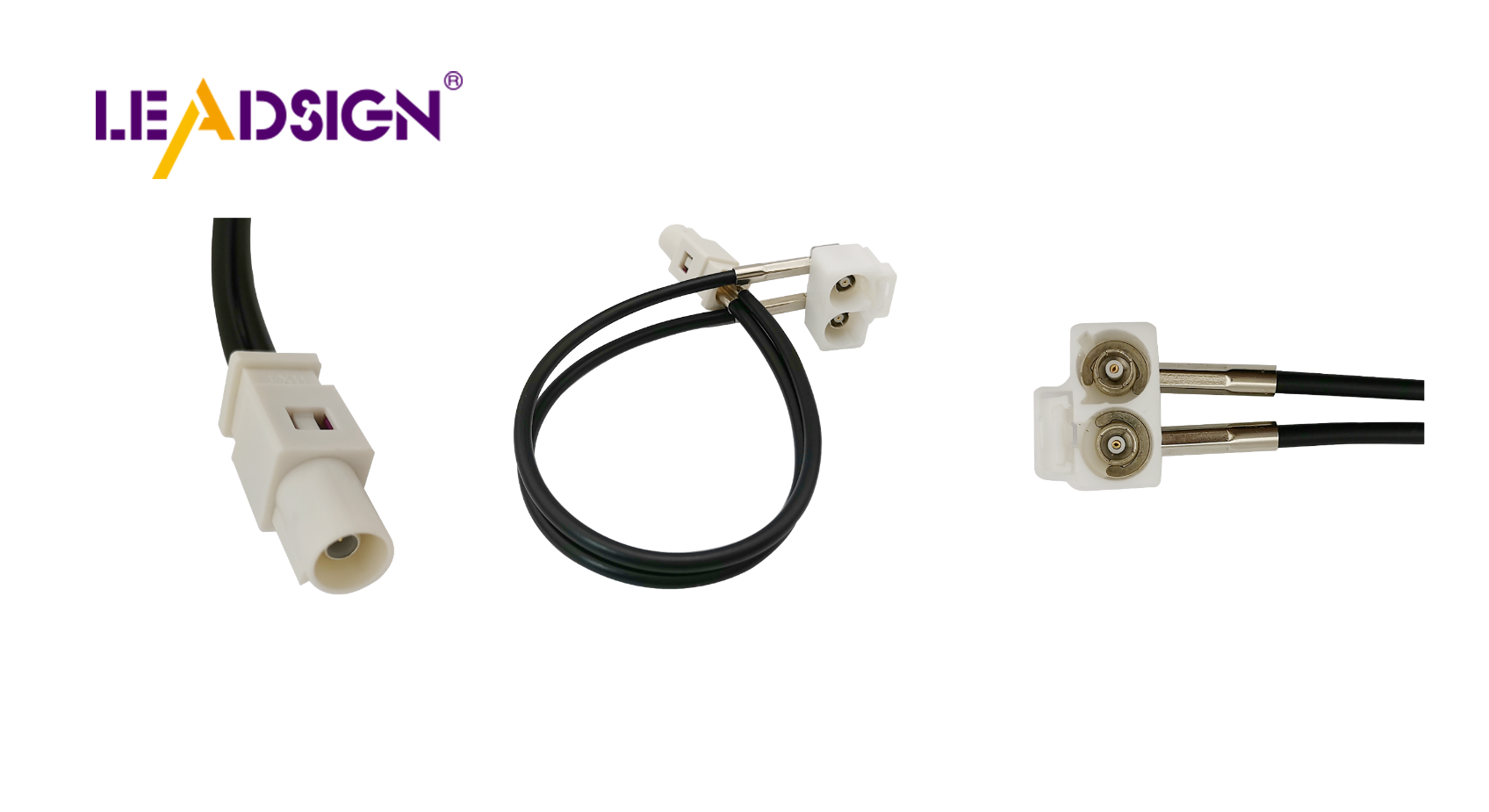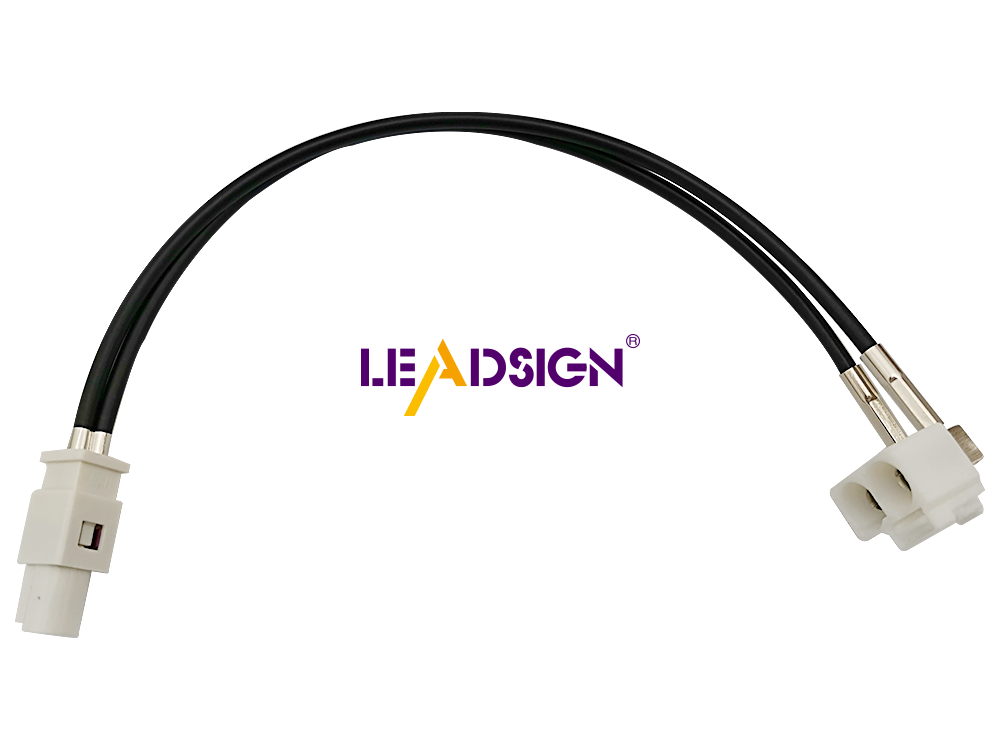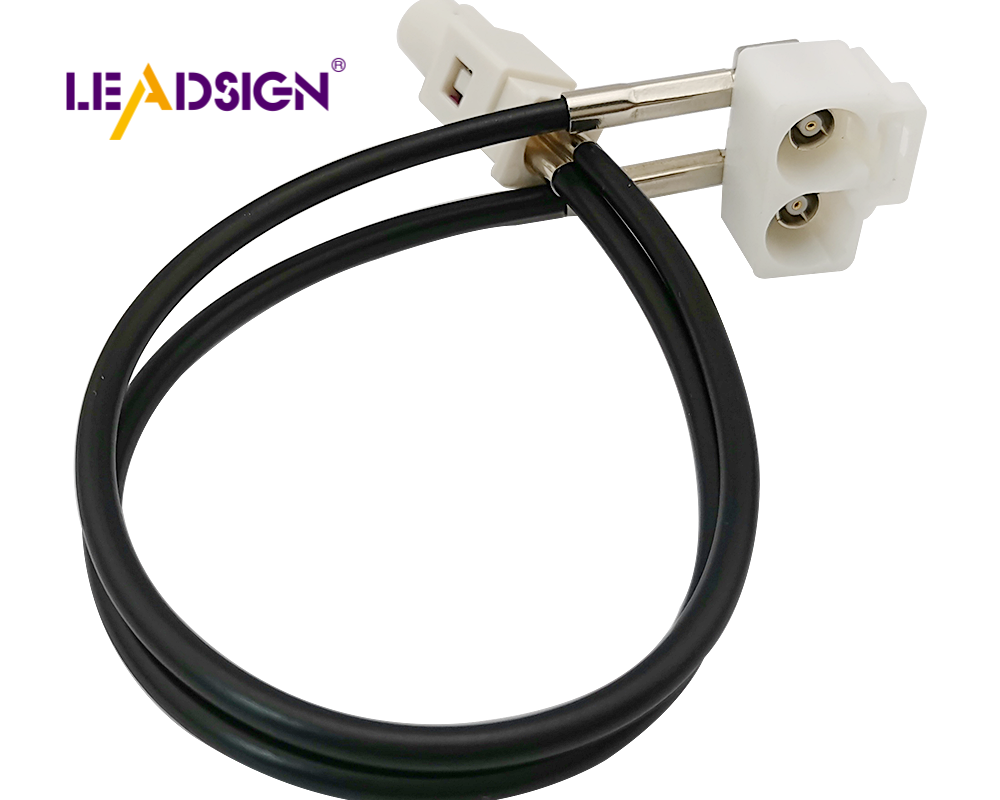Comparing Copper and Aluminum for 2 Pin Automotive Connector Efficiency

When selecting materials for car connectors, you might wonder which is better: copper or aluminum. Copper is an excellent electricity conductor and is frequently used in car wiring wire. It boasts high conductivity and strength, which are crucial for ensuring strong connections. On the other hand, aluminum is lighter and more affordable, costing about 25% of copper. However, it expands more under pressure, which can lead to loose connections. Understanding these facts will help you make informed choices for your car needs.
Key Takeaways
Copper offers superior electrical conductivity, making it the preferred choice for reliable car wiring.
Aluminum is lighter and more cost-effective, potentially saving 20% to 50% on initial setup costs, which is beneficial for budget-conscious projects.
While copper is more expensive upfront, its durability and lower maintenance needs can lead to long-term savings.
Aluminum wiring requires careful installation to prevent issues like loose connections due to expansion and contraction.
Safety is paramount; copper's resistance to corrosion makes it a safer option over time compared to aluminum.
Consider the specific needs of your vehicle when choosing between copper and aluminum, balancing factors like weight, cost, and performance.
Properties of Copper Wiring

When picking materials for car wires, copper is special. Let's see why copper wiring is often chosen.
Conductivity
Copper is known for great electrical conductivity. It carries electricity well with little resistance. This makes it a good choice for car electrical systems. With copper conductors, your car's electrical parts work well and stay reliable.
Durability
Copper wiring is very strong. Copper doesn't rust easily, so it lasts in tough conditions. This means copper wiring stays good for a long time, needing fewer fixes. Also, copper is strong and can handle lots of electricity without breaking.
Cost
Copper costs more than aluminum at first. But its benefits are worth it. Copper wiring needs less fixing and replacing, saving money later. Using copper in car wires gives better performance and is a smart choice over time.
Properties of Aluminum Wiring

When choosing car wire materials, aluminum has some good points. Let's see why aluminum wiring could work for your car.
Lightweight Nature
Aluminum is much lighter than copper. This makes it great for cars where less weight is important. Lighter cars use less fuel and go faster. Aluminum wiring helps with this without hurting your car's electric parts. Because it's light, you can use more wire with less support, which is helpful in big projects.
Cost-Effectiveness
A big reason to pick aluminum is its low cost. Aluminum wiring became popular because it's cheaper than copper, especially when copper prices are high. By using aluminum, you can save 20% to 50% on setup costs compared to copper. This makes aluminum conductors a smart choice if you want to save money but still get good quality.
Potential Drawbacks
Even though aluminum has perks, it also has downsides. Aluminum wiring can expand and shrink, leading to loose connections. This can cause sparks, overheating, and even fires if not fixed. Also, aluminum is softer than copper, so it can get damaged when put in. To avoid problems, make sure aluminum wiring is set up right and follows safety rules.
By knowing these facts, you can decide if aluminum is good for your car wires. Think about the good and bad sides to see if aluminum fits your car needs.
Detailed Comparison of Car Wiring Wire
When picking between copper and aluminum conductors for car wires, it's important to know their differences in conductivity, weight, and cost. Each has special benefits that affect how well your car's electrical system works.
Conductivity
Copper is great at carrying electricity. It moves electric currents easily with little resistance, making sure your car's electric parts work well. This makes copper a top pick for car wires, where steady electricity is key. Aluminum carries less current. It's lighter but doesn't conduct as well as copper. Still, aluminum can work if set up and cared for right.
Weight
Weight matters in cars. Aluminum is much lighter than copper, which helps make cars lighter. Lighter cars use less fuel and perform better. You can use more aluminum wire without adding much weight, which is good for big projects. Copper is heavier, which can make putting it in harder. But its strength and conductivity often make up for its weight.
Cost
Cost is big when choosing car wire materials. Aluminum is cheaper than copper, making it a good choice for big projects. You can save 20% to 50% on setup costs with aluminum. This makes aluminum a good pick if money is tight. Copper costs more at first, but it saves money later with less fixing needed. Choosing between copper and aluminum conductors depends on balancing cost now with how well they work over time.
Practical Uses and Thoughts
When picking copper or aluminum for car connectors, think about safety, setup, and upkeep.
Safety
Safety is very important in cars. Copper wires are safer over time because they don't rust easily. They don't rust as fast as aluminum, so there's less danger of electric problems. Copper carries electricity well, stopping it from getting too hot. Aluminum is lighter but rusts more, which can make connections loose and cause fires. Installing them right and checking often can help avoid these problems.
Setup
How you set up wires matters a lot for car connectors. Copper wires are strong and tough, making them easy to put in. They bend well, so they connect safely and don't break easily. Aluminum is softer, so you have to be careful not to break it. It's light, which helps make cars lighter, but you need to put it in just right to make sure it works well.
Upkeep
Taking care of your car connectors keeps them working well. Copper wires need less fixing because they're strong and don't get damaged by the weather. They stay good for a long time and work well. Aluminum wires might need more care. They can get loose because they change size, so you need to check them often. Good care can make aluminum wires last longer.
Copper and aluminum connectors each have their own benefits. Copper is great at carrying electricity and doesn't rust easily. This makes it work well even in tough conditions. So, copper connectors are very reliable. Aluminum, however, costs less than copper. It's also lighter, which helps cars use less fuel. If you want strong and steady performance, pick copper. But if saving money and having a lighter car is important, aluminum might be better for you.
FAQ
Why don't copper connectors work well with aluminum wire?
Copper and aluminum are different. They don't mix well. When joined, they can rust. This happens because they react, especially with water. Rust makes bad connections and can cause problems.
What should you think about when picking copper or aluminum connectors?
When choosing, think about these things:
Load Capacity: Copper holds more power.
Maintenance: Copper needs less fixing.
Weight: Aluminum is lighter, good for cars.
Conductivity: Copper carries electricity better.
Tensile Strength: Copper is stronger.
Resistance to Corrosion: Copper rusts less.
Cost: Aluminum is cheaper at first.
Reliability and Performance: Copper works better over time.
How are copper and aluminum connectors different?
Copper connectors are better at carrying electricity. They are strong and don't rust easily. Aluminum ones are lighter and cost less but aren't as tough. Choose based on what you need.
What are the good things about copper connectors?
Copper connectors have many benefits:
Superior Conductivity: They carry electricity well.
Resistance to Corrosion: They handle weather better.
Stability and Efficiency: They work steadily.
High Tensile Strength: They are tough.
Safety: They lower the chance of problems.
Longer Lifespan: They last longer.
What did the study find about electrical connections?
A study showed copper wires with copper connectors work best. They beat aluminum in power use. Copper keeps connections strong.
What should you know about connectors for aluminum wires?
Use connectors made for aluminum. This stops problems and keeps things safe. For soldering, use copper. Aluminum is hard to solder.
See Also
Boosting Performance Using HFM Connectors in Vehicles
Enhancing Vehicle Data Flow with Innovative Connectors
Benefits of HFM Connectors for Automotive Applications
Key Benefits of HSD Connectors in Vehicle Systems
Improving Data Transfer: Significance of High-Speed Connectors

